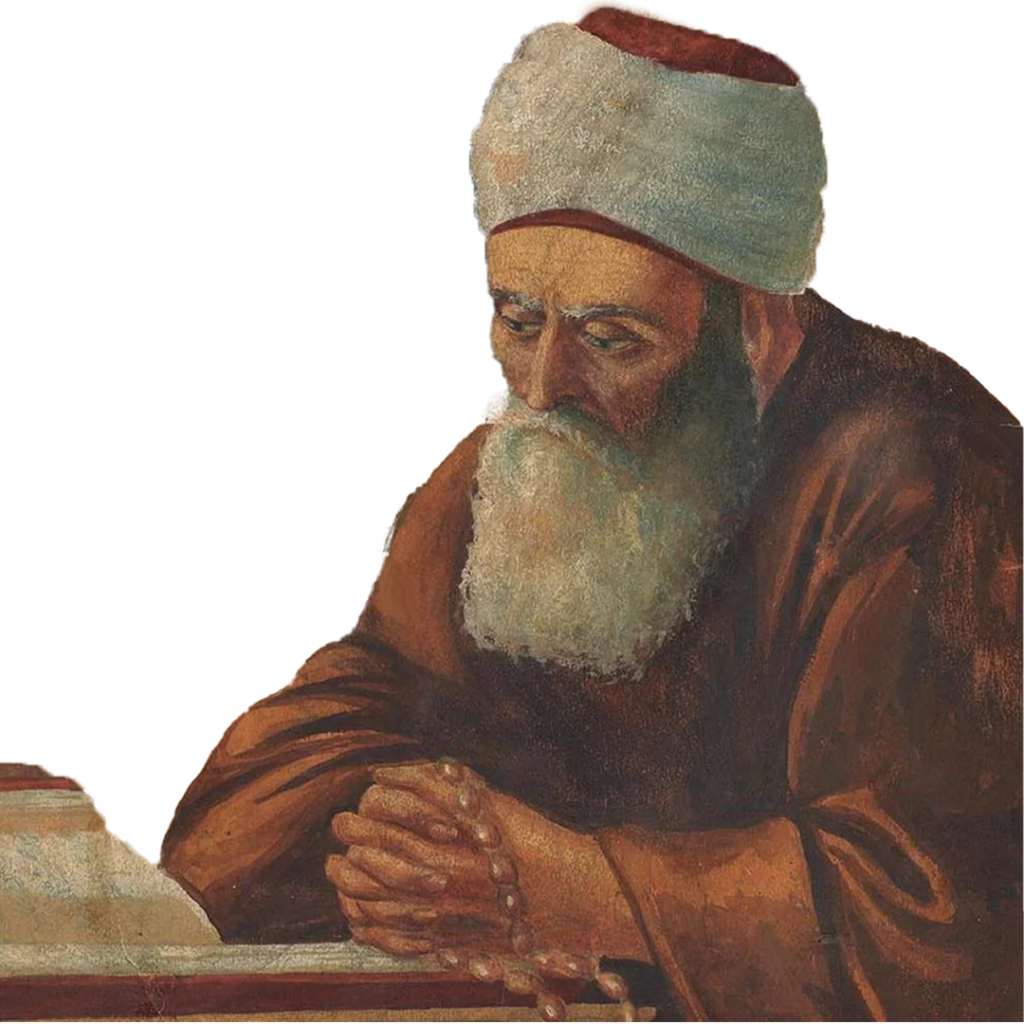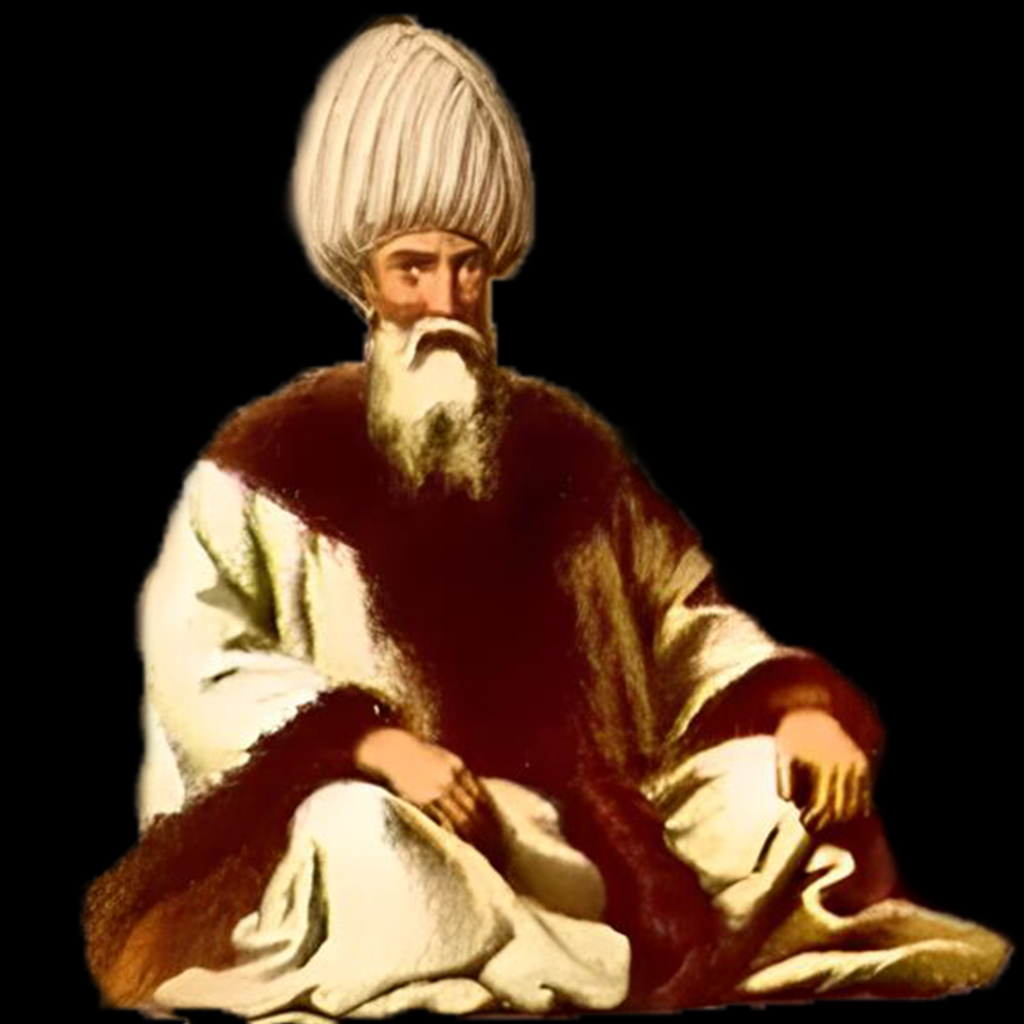Would you like to get answers to your questions from Imam Maturidi’s perspective? Thanks to artificial intelligence technology, we bring the wisdom and deep thoughts of Imam Maturidi, one of the leading thinkers of the Islamic world, to the modern world. On this interactive platform, you can ask any questions you may have about Imam Maturidi’s life, works, thought structure and the basic principles of Islam. Based on Imam Maturidi’s philosophical and theological views, artificial intelligence will provide you with answers from his mouth, so that you can find answers to your modern questions with the deep wisdom of a historical figure.Don’t miss this unique opportunity to better understand the challenges of Imam Maturidi’s time, his intellectual journey and his role in the understanding and interpretation of Islam.

In today’s world, access to accurate and reliable information on religious and philosophical issues has become more important than ever. Imam Māturīdī is recognized as an important representative and thinker of Ahl al-Sunnah theology in the Islamic world. His teachings and ideas provide in-depth information on maintaining the balance between reason and revelation in Islamic thought and supporting the principles of faith with rational evidence. Artificial intelligence technology presents Imam Mâturîdî’s ideas and teachings in an accessible and understandable way. This artificial intelligence model provides users with the opportunity to gain in-depth understanding and accurate knowledge in religious knowledge by presenting accurate and comprehensive information based on Imam Mâturîdî’s teachings. Users can learn about Imam Mâturîdî’s life, works, thoughts, and contributions to Islamic theology; they can ask their questions and get satisfactory answers. In this way, it becomes an important resource both for academic studies and for individual information acquisition processes.

Abu Mansur al-Maturidi was born in Samarkand in 853 and died in the same city in 944. He is the founder of the school of theology known as Maturidism in the Islamic world. Maturidi, who lived during the Abbasid period, was recognized as an important scholar in the Maveraunnehir region, in the territory of present-day Uzbekistan. Samarkand was one of the leading centers of science and culture in the Islamic world during his lifetime. Maturidi had a deep knowledge of Islamic sciences. He was educated in various fields such as theology, fiqh and tafsir, and especially studied the views of Abu Hanifa, the founder of the Hanafi sect, in depth. Among his teachers were Abu Bakr al-Jurjani and Abu Nasr al-Iyadi.Maturidi is one of the most important representatives of Ahl al-Sunnah theology and, together with Ash’arism, forms one of the two main theological schools of Sunni Islam. His thoughts are based on the necessity of using reason and revelation together. According to him, reason is an important tool for understanding religious rulings and grasping the existence of God. The most important works written by Maturidi are “Kitab al-Tawhid” and “Te’vilat al-Qur’an”.
While “Kitab al-Tawhid” deals with the basic issues of theology, “Te’vilat al-Qur’an” interprets the verses of the Qur’an with the unity of reason and transmission. Maturidi belonged to the Hanafi sect and adopted and developed the jurisprudential and theological views of this sect. His works and thoughts had a great impact on the Islamic world and formed the basis of the school of Maturidism.
Maturidi received in-depth training, especially in the jurisprudence and theology of the Hanafi sect. Since Samarkand was an important center of knowledge at that time, Maturidi received a broad education in various Islamic sciences here. Maturidi, who studied and adopted the views and methodology of Imam Abu Hanifa, the founder of the Hanafi sect, carried his work in this field even further.
There are important names among Maturidi’s teachers. These teachers gave him a deep knowledge of both fiqh and kalam. Some of his prominent teachers are:
Abu Bakr al-Jurjani: Abu Bakr al-Jurjani was one of Maturidi’s most influential teachers in theology and jurisprudence. Curjani’s lectures helped Maturidi to learn Hanafi jurisprudence in depth and to grasp the subtleties of theology.
Abu Nasr al-Iyadi: Abu Nasr al-Iyadi was among the teachers who played an important role in Maturidi’s upbringing. Iyadi’s lessons provided Maturidi with a well-grounded knowledge of theology and jurisprudence.
The following main topics stand out in Maturidi’s education:
Theology: Maturidi focused on the science of theology, which examines the principles of Islamic belief on the axis of reason and transmission. The science of theology aims to defend and explain Islamic beliefs. Maturidi adopted an approach that emphasized the use of reason in this area.
Fiqh: Maturidi, who belonged to the Hanafi sect, studied and developed this sect’s understanding of fiqh in depth. He adopted the views of Imam Abu Hanifa, the founder of Hanafi fiqh, and practiced fiqh in line with these views.
Tafsir Maturidi also worked in the field of interpretation (tafsir) of the Holy Qur’an. His understanding of tafsir is based on interpreting the verses with the unity of reason and transmission.
Maturidi’s education, the lessons he took and the knowledge he gained from his teachers enabled him to have a deep knowledge in Islamic sciences. This knowledge played an important role in his establishment and development of the school of Maturidism. This education Maturidi received from his teachers was reflected in his works and thoughts, and had a significant impact on the Islamic world.
Reason and Revelation: Reason and revelation have an important place in Maturidi’s system of thought. According to him, reason is an important tool in understanding the existence and unity of God and in comprehending religious rulings. Revelation is a divine guide that transcends the limits of reason and guides people to the right path. Maturidi argues that reason and revelation complement each other and that these two sources should be used together.
Faith and Deeds: Maturidi takes a different approach from Ash’arism in matters of faith and deeds. According to him, faith is the affirmation of the heart and the assertion of the tongue. And deeds are not a part of faith, but a consequence of it. Therefore, for a believer to sin does not take away his faith, but it does make him a sinful Muslim.
Human Free Will and Destiny: Maturidi emphasizes the free will of man. According to him, human beings are responsible for their own actions and God has given them freedom of will. However, Allah’s knowledge and power are all-encompassing and He is the absolute determiner of destiny. In this context, human actions are within God’s knowledge and providence, but man is responsible for his own choices.
Faith and Knowledge: Maturidi argues that faith must be based on knowledge. The believer must be knowledgeable about the matters in which he believes and support this knowledge with reason. This approach shows the importance Maturidi attached to rational thought.
Kitab al-Tawhid: One of Maturidi’s most important works, “Kitab al-Tawhid” deals with the basic issues of theology. This work systematically presents Maturidi’s views on issues such as the existence and unity of God, His attributes, prophethood and the hereafter. In this work, Maturidi emphasizes the unity of reason and revelation and defends the principles of Islamic belief on a rational basis.
Te’vilat al-Qur’an: “Te’vilat al-Qur’an” is Maturidi’s most important work in the field of tafsir. This work interprets the verses of the Holy Qur’an with the unity of reason and knowledge. In his exegesis, Maturidi takes into account the literal (apparent) meanings of the verses, while at the same time exploring the deeper meanings behind these meanings. This approach enables him to approach the Qur’an from a rational and holistic perspective.
Tawhid: Maturidi’s understanding of tawhid includes his detailed views on the unity of God and His attributes. According to him, it is necessary to distinguish between God’s essence and His attributes. God’s attributes are eternal and everlasting, and therefore cannot be separated from God’s essence.
Makalat: Maturidi’s “Maqalat” is a work in which he discusses the views of different Islamic sects and schools of thought. In this work, Maturidi compares the principles of belief and theological views of various sects and explains his own views in this context.
Maturidi’s thoughts and works formed a school that emphasized the rational approach and rational thought in the Islamic world, and this school was accepted as an important branch of Ahl al-Sunnah. Maturidi’s system of thought, based on the unity of reason and revelation, made important contributions to Islamic theology and was adopted by subsequent generations.
Browse our most watched content on the topic and discover our viewers’ favorite topics and popular discussions. Don’t miss out on these special episodes that captivate and provoke thought.

İstanbul Okulu; dinî ve felsefî pek çok meseleyi uzman konuklarla ele almayı hedefleyen yepyeni bir YouTube kanalıdır.